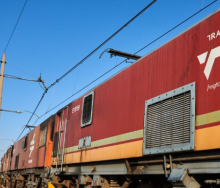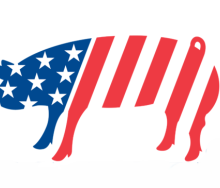The Congress of South African Trade Unions (Cosatu) says it is “appalled” at yet another repo rate hike that will “suffocate the economy”, impacting indebted workers, businesses and jobs.
Cosatu spokesperson Sizwe Pamla said in a statement in reaction to the SA Reserve Bank’s (SARB) latest 50 basis point interest rate hike on Thursday that while the union agreed inflation needed to be controlled, it was “appalled” by the latest decision. He accused the bank of being “indifferent and unaccountable” to the plight of workers. The latest hike takes the repo rate to 8.25%.
“The economy will be lucky at this rate to achieve its projected 0.9% growth. Unemployment is dangerously high at 42.4% and many companies have closed or are hanging on for dear life. This decision will make a bad situation worse,” Pamla said in a statement.
“It is another proof that the Reserve Bank is indifferent to the plight of workers who are currently reeling under the pressure of high indebtedness. High interest rates raise the cost of living for everyone who is repaying a loan,” he said.
“The effect of the government outsourcing the management of the economy to the SARB and its one tool kit is a cumulative 475 basis points over the past 18 months. This will suffocate the economy and collapse any prospects of it growing, especially because about 60% of the economy’s GDP comes from consumer spending.”
He said high interest rates would deter thousands of small businesses from raising capital to expand or set up new ones.
“This is a serious factor that contributes to the slowdown in economic growth and the slow rate of new job creation. The expansion of the manufacturing sector will remain an illusion as companies will be more cautious to borrow money from the banks to expand their operations and create more jobs,” he said.
“The National Treasury needs to take full responsibility for this crisis and take drastic steps to provide the necessary relief to the economy. The economy cannot afford for the SARB to continue increasing an already high repo rate to manage an inflation rate whose causes are external, namely the war in Ukraine, load-shedding, and the high price of oil,” Pamla added.
Cosatu called for the government to take the following steps, among others:
• Lower fuel taxes that consume 28% of the fuel price.
• Eskom and Nersa must review the 18.65% electricity tariff hike for 2023.
• Treasury must adjust the social relief of distress grant for inflation.
• Treasury and the public and private banking sectors should develop a package of measures to help struggling consumers and SMMEs.
• Reduce the price of ten essential food items through Vat exemptions and the waiving of markups by retailers being fast-tracked.
• Government must coordinate an aggressive buy-local campaign to support local industries.
“It is clear to all properly adjusted persons that the status quo cannot be allowed to continue. The one-trick approach by the SARB is not just farcical, but it is reckless and dangerous,” Pamla said.













